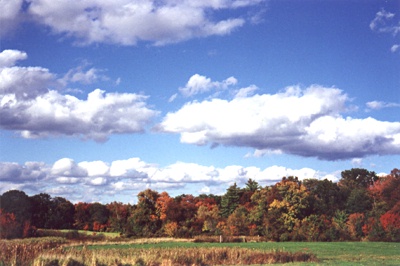All Nonfiction
- Bullying
- Books
- Academic
- Author Interviews
- Celebrity interviews
- College Articles
- College Essays
- Educator of the Year
- Heroes
- Interviews
- Memoir
- Personal Experience
- Sports
- Travel & Culture
All Opinions
- Bullying
- Current Events / Politics
- Discrimination
- Drugs / Alcohol / Smoking
- Entertainment / Celebrities
- Environment
- Love / Relationships
- Movies / Music / TV
- Pop Culture / Trends
- School / College
- Social Issues / Civics
- Spirituality / Religion
- Sports / Hobbies
All Hot Topics
- Bullying
- Community Service
- Environment
- Health
- Letters to the Editor
- Pride & Prejudice
- What Matters
- Back
Summer Guide
- Program Links
- Program Reviews
- Back
College Guide
- College Links
- College Reviews
- College Essays
- College Articles
- Back
In the Middle of the Countryside
In the middle of the countryside, where tall flowers and weeds grow, a bridge sits across a tiny creek. The bridge is heavy and stony and crushes the soft grains of soil beneath it to a muddy mush that streams out over the grasses into the water when it rains. As far as the eye can see stretching cat-tails and sedges wave their sandy knotted heads and rustle against one another. Occasionally a boot or a scarf or a ring appears resting, but the birds and bees ignore it as the hum and flutter by, just as the wind ignores the remnants, the artifacts of human beings. The summer solstice brought the sun’s brilliant beams to beat the land, bringing it nearly to a boil, creating a state of hazy lull over the country.
One old man walked through. The man looked like an elderly fox limping through the field with a skinny body, narrow eyes, and sharp ears. He wore his best summer suit, a light cotton shirt and flat pants. His shoes were shined to a sparkle. The man rubbed his eyes and wrinkled face; his mouth remained slightly agape and he adjusted his black hat and lurched tirelessly on. After what could have been an hour or an eternity, he reached the wooden bridge and heard the trickling of the stream, and felt the moist soil beneath his now muddied shoes.
He gazed at the stone bridge: moss had grown in between the heavy gray blocks. His tired eyes could not reveal much more than a blurry image within the streaking fog of yellow, green and white. Holding his hand out to keep his balance, he went on to the bridge and halted, becoming as still as a withering tree.
After many minutes, his voice slithered outwards: “They speak to me.
“That’s right, I hear them. Old John and Jorge and Carlyle and the boys; the pretty nurses and the old doctor. They all are still here.” He shuffled nervously to the center point of the bridge and peered down into the rippling water, which hustled and swam over the rocks beneath it.
He saw himself in his armor and he saw the long rifles they used to use with the bayonets pointing leeringly outwards; he saw the gun in his right hand and a dagger in his left. He saw the man fall, bloodied and red by his blade. He saw his friends fall behind him; he saw the confetti fall and the banners raised and heard the trumpets blare. He saw himself in his rage and he saw a woman’s pleading face.
A bird sang in the distance. The man took a look back at the field and removed a knife from inside his suit. The tip glinted in the sunlight and the man wished he was sweating due to the sweltering heat—but he was not. He stopped breathing.
Then he saw it.
A gold ring rusted over with orange and peeling brown skin. It sat between the rocks on the very edge of the river. The knife clattered on the hard stones.
As fast as his creaky bones could carry him, he rushed across the bridge to the other side and down to the riverbed. Nearly tripping, he held his hands out wildly and blood rushed to his head and he saw stars popping in front of the sloping grass and he kneeled down to the surface of the water, hacking coughs. He dipped his hand into its cool depths and retrieved the ring, now nothing more than a roughly circular hunk of metal.
He examined it and forced himself to his feet. He saw it fall from the finger of his friend, who he had loved and had hated, who he had betrayed to win, who he had killed for his country.
“Some man, woman, or child never wants to forgive me.” Rolling the finger in between his hands, the old man determined a course of action. “But they will have to.”

Similar Articles
JOIN THE DISCUSSION
This article has 0 comments.
